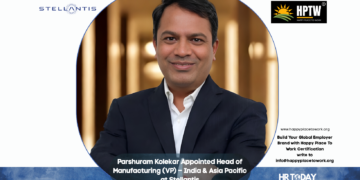For more than 28 years, Tamer Shalaby has built a distinguished career in Human Capital and Organizational Development, marked by his ability to translate people strategy into tangible business results. His journey reflects a rare balance between strategic leadership and operational depth, enabling organizations to grow, adapt, and sustain performance in complex and fast-evolving environments across the MENA region.
Throughout his career, Tamer has moved fluidly between enterprise-scale organizations and transformation-focused mandates, shaping HR functions that are deeply embedded in business strategy rather than operating on the sidelines. A defining aspect of his professional path has been working within large, complex organizations where HR must operate simultaneously as an operational backbone and a strategic driver—an experience that sharpened his executive judgment and transformation capability.
During this phase of his career, Tamer held senior HR leadership responsibilities within TE Data, one of Egypt’s leading telecommunications companies. Operating in a highly dynamic and technology-driven environment, he contributed to both operational HR leadership and strategic workforce initiatives, gaining valuable exposure to scale, governance, and organizational complexity. This experience strengthened his ability to align HR operations with broader business priorities—an approach that continues to shape his leadership style today.
Building on this foundation, Tamer went on to assume broader executive and group-level roles. He currently serves as Human Capital Senior Director at IGI Group, a diversified organization spanning real estate, construction, sports management, and facility management. Leading HR across nine subsidiaries, he ensures alignment, governance, and integration at group level while driving leadership development, succession planning, and cultural transformation.
At IGI, his impact extends beyond systems and policies. He has led executive recruitment and leadership pipeline development, introduced engagement frameworks that reduced turnover and improved satisfaction, and championed culture transformation initiatives that embedded trust, collaboration, and innovation across the group.
In parallel, Tamer holds the role of Deputy CEO & Chief Human Resources Officer (CHRO) at MB Group, where he operates at executive level, overseeing organizational performance while steering people strategy. In this dual role, he ensures that HR functions as a strategic enabler of growth, agility, and long-term organizational resilience.
Alongside his corporate leadership roles, Tamer is widely recognized for delivering high impact consultancy transformations. He has led recent consultancy engagements with
MODAD Group, NAIA Developments, and Q Developments, where he was entrusted with reshaping HR functions and organizational culture within accelerated timelines.
Across these engagements, his work has included redesigning talent and retention frameworks, restructuring compensation systems, launching leadership development programs, and embedding performance-driven cultures—always with a focus on sustainability rather than short-term fixes.
Beyond these assignments, Tamer has advised more than 15 organizations across industries including technology, retail, hospitality, and construction. His advisory work is characterized by speed, clarity, and pragmatism—quickly diagnosing organizational challenges and delivering solutions that leave lasting impact.
Academically, Tamer holds a BSc in Commerce from Cairo University, a Postgraduate Diploma in Human Resources from the American University in Cairo, and a Mini MBA from Frost & Sullivan (UK), alongside multiple professional certifications in HR leadership, compensation, organizational change, and assessment methodologies.
What ultimately distinguishes Tamer Shalaby is his ability to bridge strategy and execution, vision and delivery. Whether leading within large enterprises, driving group wide transformation, or executing rapid consultancy mandates, his hallmark remains the same: transforming HR into a catalyst for organizational agility, leadership strength, and cultural resilience.











